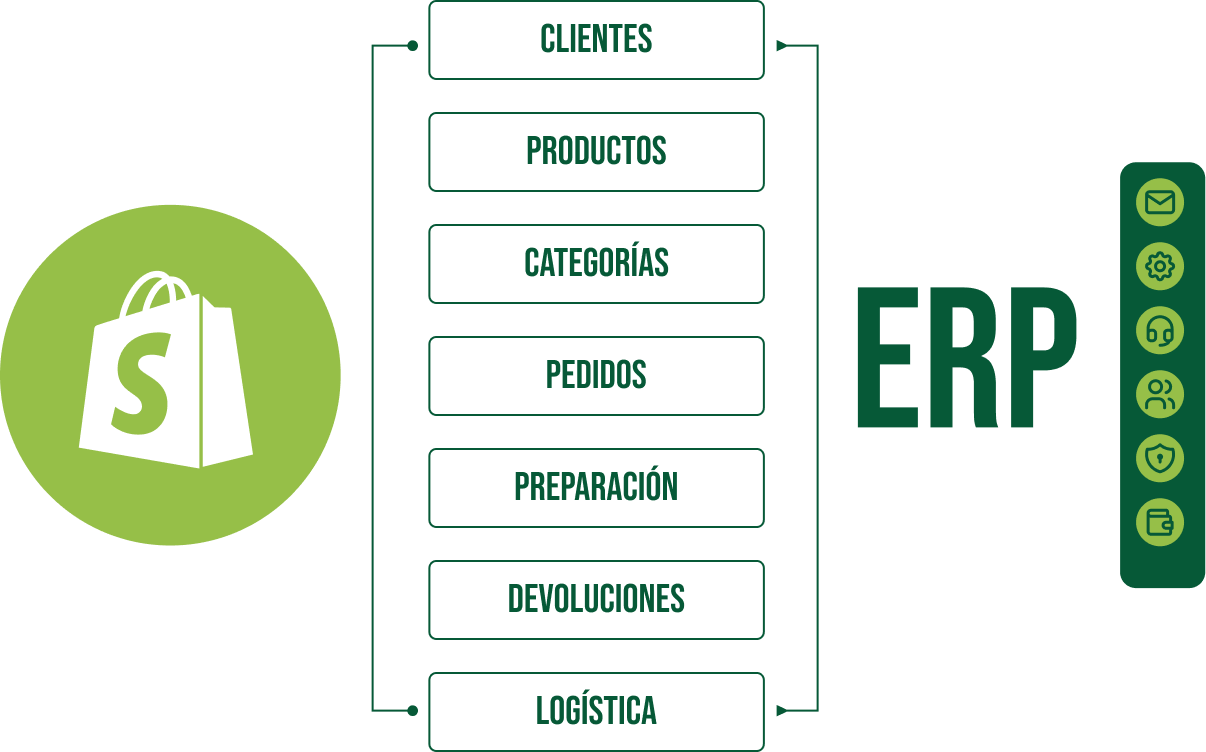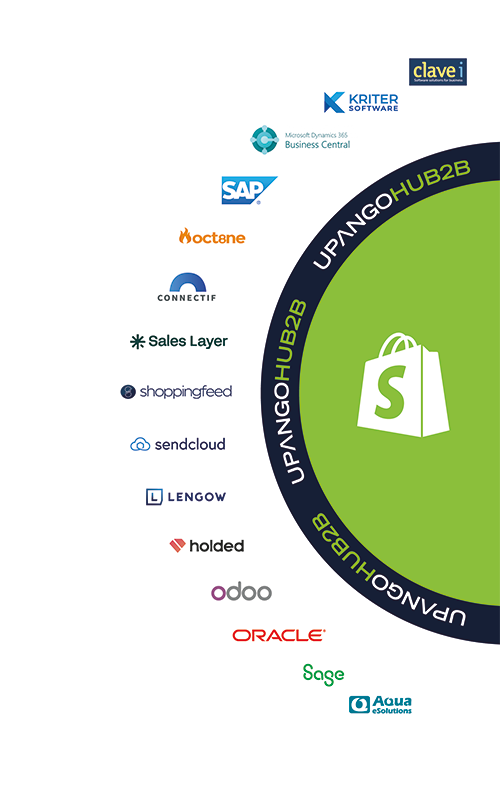Integrations
How the tools, systems, and processes that make up the company's digital ecosystem connect and coordinate.
How the tools, systems, and processes that make up the company's digital ecosystem connect and coordinate.
Many companies face a fragmented reality: multiple tools, manual processes, and a lack of technical resources and deep management knowledge.
At Upango, as a technology consultancy specializing in e-commerce and digital solutions for businesses, we help our clients automate processes, digitize their businesses, and connect all the key applications in their digital ecosystem.
We do this from a strategic perspective, understanding that integration is not just technical: it is organizational, operational, and business-related.
Integration means making tools talk to each other. It means connecting e-commerce with the ERP, with marketplaces, the CRM with the logistics system, all with a common logic. It means eliminating repetitive tasks, avoiding manual errors, and building fluid, scalable, and sustainable operations. These are some of the systems we routinely integrate into our projects.


We work on B2B, B2C, D2C, and B2B2C projects where operational complexity demands automation, strategic vision, and adaptation to market needs. We design digital solutions for companies that need to scale, improve efficiency, and make decisions based on real data.

The data hub is the core where information is centralized, standardized, and distributed across systems. It's key to ensuring that all channels, from e-commerce to the ERP or marketplace, work with consistent and up-to-date data. It's essential to ensuring information consistency.
Our services are designed to support each company in its process of digitalization, growth, and continuous improvement, adapting to each type of business, operating model, and the real needs of each client.
